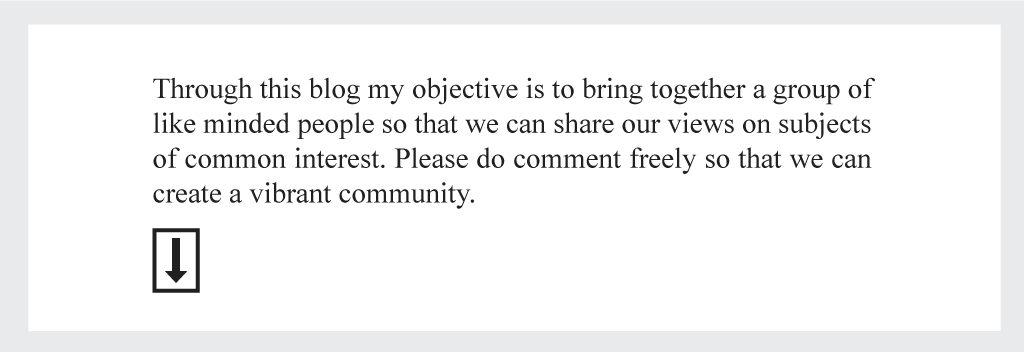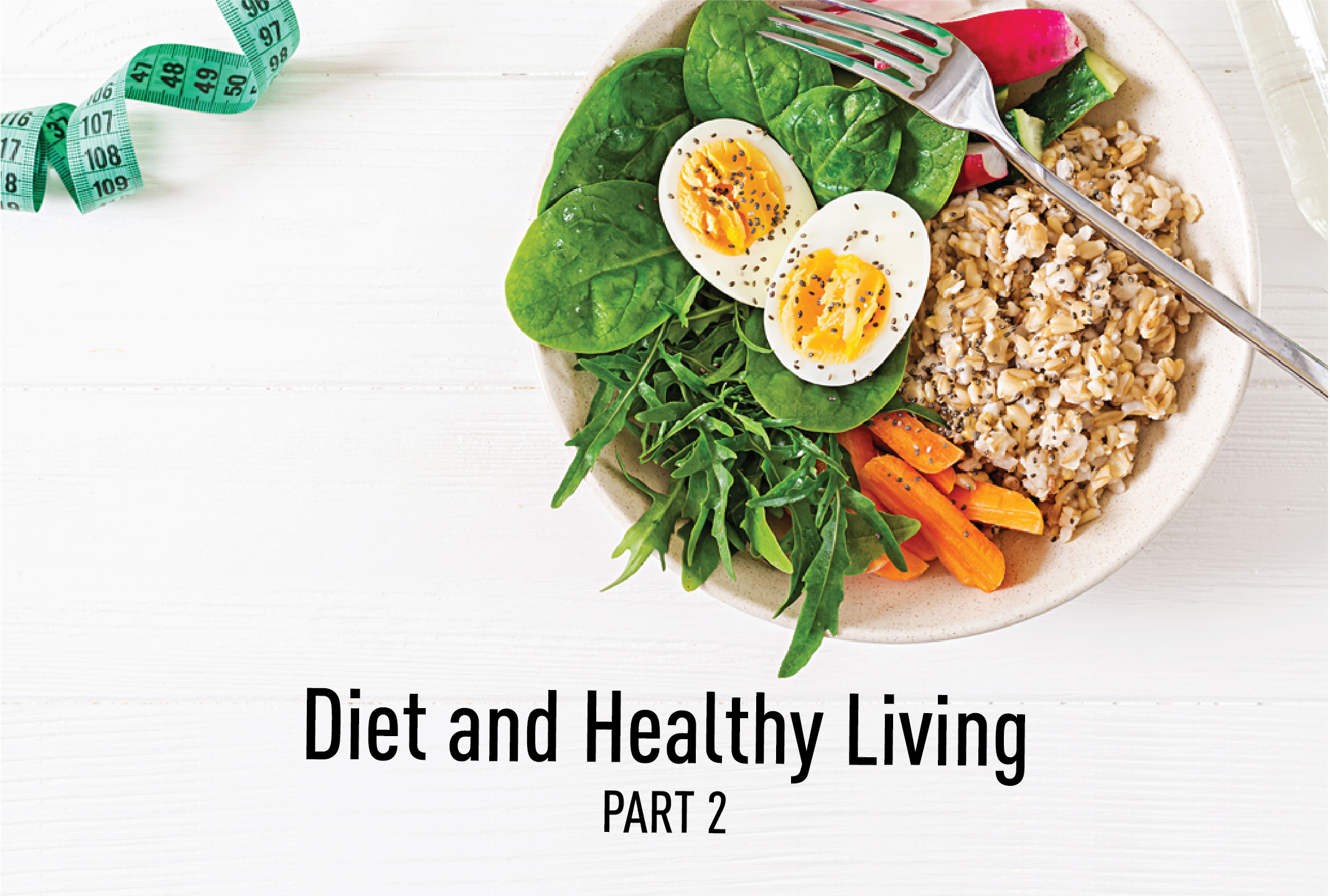Diet and Healthy Living Part 2
In my last article I wrote about the dangers of over medication and the corruption through which the big pharmaceutical industries create an artificial demand for their products which is sometimes not only unnecessary but indeed even harmful.
I am of the opinion that our body has an immense capacity to preserve and heal itself. As long as we have a healthy lifestyle, there will be very little requirement for medical intervention for common ailments like hypertension, anxiety, insomnia, type 2 diabetes and a host of other diseases which are the result of a poor lifestyle. Medicines do not cure these diseases; they just provide a temporary relief. In some cases, as the body gets used to the medication, an ever increasing dosage is required to get the relief till a point is reached where the medicine ceases to be effective because an even higher dosage is not possible.
A healthy lifestyle is mainly about diet and exercise. Emotional and spiritual health are also important elements if we are to take a holistic view of health but I will limit my focus to the physical aspect of our health. In this article I will write about diet.
Our ancestors did not have access to food 24/7. Till they settled into a sedentary life of farming in the Neolithic age, our ancestors were hunter gatherers. They would constantly move from one place to another and spend long stretches of time without eating. Thus from a historical perspective it appears that our body was designed for intermittent periods of fasting. It has been scientifically proven that a number of beneficial effects take place when we go without eating for extended periods of time. All major religions espouse fasting. Prophet David (Daud) fasted every other day. Abdullah Ibn Amr Ibn Al-As narrated: Allah’s apostle said to me: “The most beloved fasting to Allah was the fasting of (the Prophet) David, who used to fast alternate days”.
Intermittent fasting is a powerful approach that facilitates weight loss and helps reduce the risk of chronic diseases like Type 2 diabetes. Intermittent fasting refers to not eating for at least 14 hours in a day thereby limiting the window for eating to no more than 10 hours. Having a late breakfast and an early dinner is a very healthy way of living. There is a misconception amongst some people that not eating for long periods of time leads to ulcers in the stomach etc which is a totally unfounded fear. Many people are constantly grazing. Apart from the three meals a day they are also snacking in between. Most of what they consume is carbohydrates and sugary food. This results in becoming progressively more insulin resistant and start gaining weight. Diabetes is a condition in which our body develops resistance to insulin which drives our blood glucose level high. Conventional medicine aims to treat the symptoms of diabetes, when the condition is in fact preventable or even reversible simply by changing our eating habits. While diabetes is a disease, obesity is the cause of many ailments like high blood pressure, cardiovascular disease and certain cancers.
What we eat is as important as how much we eat. One significant risk factor for insulin resistance is overeating carbohydrates and added sugar because they spike our insulin level and gradually increase our cellular resistance to insulin. Equally important is to eat wholesome food instead of processed food. The different interest groups for their obvious business interests have demonized so many of the wholesome foods that our ancestors consumed and lived perfectly healthy lives. On the basis of flawed research margarine became the fad and butter was vilified. Hydrogenated vegetable oils (trans fats) became the vogue and saturated fat (ghee) was ostracized till in the 1990s independent research exposed the dangers of trans fats. Polyunsaturated oils like Corn, Soybean and Canola oils are also unhealthy because of their quicker oxidation and production of unhealthy compounds when heated.
The processed food industry is the biggest risk to good health. Sugary soft drinks, cookies, chocolates, packaged frozen foods, canned foods, breakfast cereals and fast food are all fake food. Unlike wholesome food (like home cooked food) which contain a mix of carbohydrates, fats, proteins and fiber to keep us feeling well fed, processed foods stimulate dopamine, a neurotransmitter which makes us feel good while eating these junk foods when in reality the food lacks nutrients.
The Mediterranean region has the healthiest diet which is low on meat but high on fresh vegetables, fish, healthy fats and fruits. I have always found rice to be a much healthier staple than wheat or potatoes and therefore our home cooked Bangla food with rice, lentil, vegetables, fish and some meat is a very healthy option. The caveat being that we need to reduce the portion of rice that we consume. This means a reduction in our carb intake that also helps us achieve a caloric deficit which is an absolute necessity for good health unless of course someone is a professional athlete whose diet has to be special and is outside the purview of this article. Any and every kind of dessert must be strictly avoided at all times. Sugar must be ranked as one of the most harmful substances that we consume. Apart from causing diabetes, obesity and a host of other diseases sugar is also a carcinogen (a substance that promotes cancer). Consuming sugar releases opioids and dopamine in our body. Dopamine is a neurotransmitter which is the common denominator in most addictive drugs. Sugar has the same addictive properties as dangerous street drugs.
In summary, periodic fasting is good for us. Intermittent fasting should be practiced where we eat only twice a day during a 10-hour window. Rice is the best staple food but the quantity should be kept to a minimum so that we can maintain a caloric deficit. Our diet should be more of vegetables, fish, some meat and fruits. Processed food and sugary deserts and drinks must be avoided. Our meals should be home cooked with wholesome fresh ingredients. Combining a wholesome diet with a holistic exercise regimen is the key to a healthy lifestyle. The next and final episode of this three part series will be on exercise.


Brig Gen Mohammad Ayub Ansary, psc (Retd)
January 27, 2021Diet and Healthy Living proposed by the author is the order of the day amid careless consuming of unhealthy fast food inviting inevitable health hazards. Taking food combining rice, vegetables, rentils, fish and some meat is very much affordable at all walks of life in our societies. These are the principal but cheap food stuff, most traditional that grow plenty in our country. Regrettably, we have ventured an unnatural food habit of taking expensive junk food that risks our lives owing to deadly diseases, physical inabilities, etc.
The article is a valuable guide to follow outright. It’s worth sharing, which I did, and I recommend to practice the suggested food habit should we care our lives.
Sarfuddin Nipun
May 23, 2021I am very much agreed with Mr. Ansary.
Kazi Samrat
January 28, 2021Very good thoughts and guidelines.
In Sha Allah, we (me and my family members) will follow the guidelines to get the best results and a nice healthy life.
Aysha Siddiqua
February 6, 2021I found this article very much relevant and time bound. These days we are depending on process foods and we have forgot about the balanced diet which is why we are facing different types of health hazard in our daily life. Heartiest thanks to the author for such a nice article.
Nayan Debnath
February 6, 2021While reading the text I was thinking how I could use the information given here for shaping my diet and lifestyle. I think I should limit my snacks, walk more and take less sugar from now. A balanced diet might make me slim and feel better from inside. I must also meditate everyday. Thank you for such a meaningful write-up that will help many young people like me to maintain a healthy lifestyle.
Ihtisham Kabir
February 12, 2021A sober and informed essay on the role of diet in maintaining health – chock-full of good advice and helpful, practical information. It covers a lot of different areas in order to present the case for attaining and maintaining good health through judicious eating.